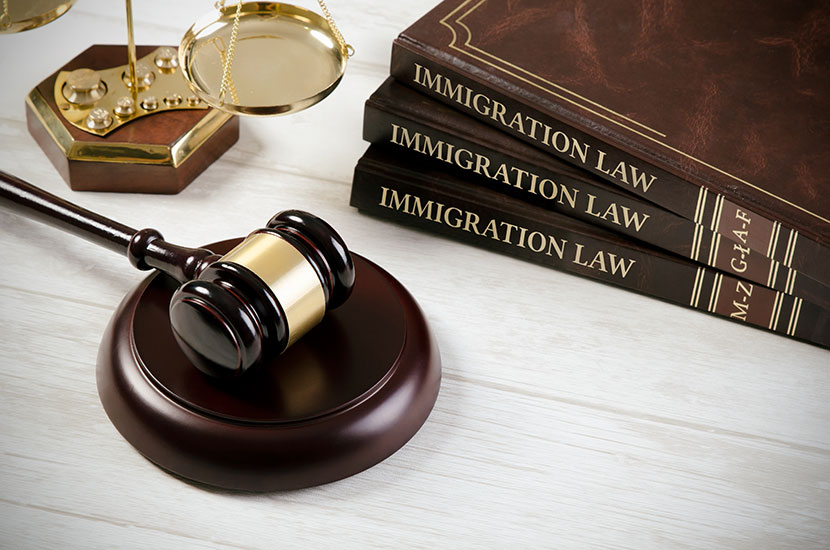Immigration Guides
How to Move to Australia: A Beginner’s Guide
Australia is full of beautiful landscapes, busy cities, and laid-back lifestyle. Are you captivated by the iconic Opera House in Sydney, the vast Outback wilderness, or the pristine beaches of Queensland? Then Aussie offers a unique blend of adventure and opportunity. But before you pack your bags and head south, understanding the process of moving to Australia is crucial.
This beginner’s guide simplifies the journey, equipping you with the knowledge and steps to navigate a successful transition to Australia.
Types Of Australia VISAs
Australia offers various visa pathways for aspiring residents, catering to diverse needs and skill sets. Here’s a glimpse into some popular options:
- Skilled Migration Visas: If you possess skills in high demand within Australia, skilled migration visas like the Skilled Independent Visa (Subclass 189) or the Employer Nomination Scheme (Subclass 186) might be a suitable option. These visas require demonstrating relevant skills and work experience through skills assessments and potential points-based systems.
- Family-Sponsored Visas: Australian citizens or permanent residents can sponsor close family members for permanent residency. This category includes visas like the Partner Visa (Subclass 309/100) and Parent Visa (Subclass 103).
- Student Visas: If you aim to pursue higher education in Australia, a Student Visa (Subclass 500) allows you to study at a registered Australian educational institution.
- Work and Holiday Visa (Subclass 462): This temporary visa caters to young adults (aged 18-30) from eligible countries, allowing them to work and travel in Australia for up to one year with the possibility of extension under specific circumstances.
Determining Your Eligibility:
The first step is to determine your visa eligibility. Australia’s Department of Home Affairs website provides a visa finder tool to help you identify the most suitable visa based on your circumstances.
Key Steps for Moving to Australia:
Once you’ve identified your target visa category, the process generally involves these steps:
- Research and Application: Thoroughly research the specific requirements for your chosen visa. This includes understanding the application process, necessary documents, and potential fees.
- Skills Assessment (if applicable): For skilled migration visas, you may need to undergo a skills assessment from a designated assessing authority to evaluate your qualifications against Australian standards.
- Medical Examinations and Police Checks: Most visa applications require mandatory medical examinations and police checks from your home country and potentially Australia.
- Visa Application Submission: Once you’ve gathered the necessary documentation and met all the requirements, submit your visa application online or through the Australian embassy or consulate in your home country.
- Visa Processing: Visa processing times can vary depending on the visa category, workload, and potential complexities in your application. Be prepared for potential delays.
Important Considerations:
- Cost of Living: Australia offers a high standard of living, but the cost of living can be higher compared to some countries. Factor in housing, food, transportation, and other expenses when planning your move.
- Job Market Research: While Australia offers promising job opportunities, thorough research into your desired field’s employment landscape is crucial. Familiarize yourself with in-demand skills and potential salary ranges.
- Settlement Services: Australia offers various settlement services to help newcomers adjust to life Down Under. These services often include assistance with finding accommodation, enrolling in healthcare, and learning English.
Preparing for Your Arrival:
- Accommodation: Research housing options and consider your budget and preferred location.
- Banking and Finances: Set up a bank account in Australia to manage your finances upon arrival.
- Tax File Number: You’ll need a Tax File Number (TFN) to work and pay taxes in Australia.
- Medicare (Australia’s public health insurance): Register for Medicare to access basic healthcare services.
FAQs: Moving to Australia
Q: How long does it take to process a visa application for Australia?
A: Processing times for Australian visas can vary significantly depending on the visa category, your circumstances, and your current workload at the Department of Home Affairs. It’s best to check the official processing times for your specific visa on the department’s website.
Q: Can I work while I wait for my visa application to be processed?
A: This depends on the type of visa you’ve applied for. Some visas, like the Work and Holiday Visa (Subclass 462), allow you to work while your application is being processed. For others, working without authorization is illegal. Consult the Department of Home Affairs website or your migration agent for specific information regarding your visa category.
Q: What is Medicare, and do I need it?
A: Medicare is Australia’s public health insurance system that provides subsidized medical services. While not mandatory, it’s highly recommended, especially if you don’t have private health insurance. Registering for Medicare ensures access to essential healthcare services at a reduced cost.
Q: What are some things I can do to prepare for the job market in Australia?
A: Here are some tips to prepare for the Australian job market:
- Update your resume and tailor it to Australian standards.
- Research in-demand skills for your profession in Australia.
- Consider obtaining professional certifications relevant to the Australian market.
- Network with professionals in your field through online platforms or industry associations.
- Build your online presence with a professional LinkedIn profile showcasing your skills and experience.
Q: Is it difficult to find accommodation in Australia?
A: The difficulty of finding accommodation in Australia can vary depending on the city and current market conditions. Major cities like Sydney and Melbourne often have a competitive rental market. Start your search early, consider alternative accommodation options like shared housing initially, and be prepared to potentially act quickly when applying for rentals.
Conclusion
Moving to Australia can be an exciting and life-changing experience. By understanding the visa options, preparing the necessary paperwork, and familiarizing yourself with the settling-in process, you can significantly increase your chances of a smooth transition to life Down Under. Remember, this guide offers a general roadmap, and the specifics of your move will depend on your chosen visa category and individual circumstances. Embrace the adventure, do your research, and with careful planning, you can be well on your way to calling Australia home.
Moving to Australia requires planning, preparation, and a sense of adventure. By utilizing the resources provided and embracing the Aussie way of life, you can pave the way for a successful and fulfilling journey in this vibrant and welcoming country.


